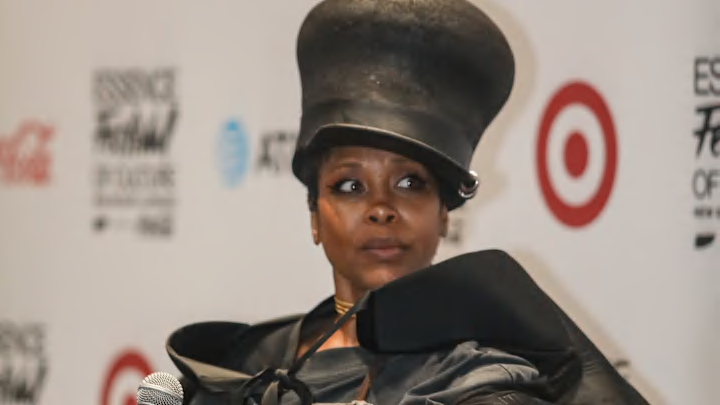Few songs in hip-hop history have sparked as much curiosity as Outkast’s 2000 classic “Ms. Jackson.” The track was an instant hit, mixing sharp rap storytelling with heartfelt emotion, and ever since its release, fans have wondered who the song was really about.
For years, many believed the anthem was inspired by Erykah Badu, the neo-soul icon who shares a son with André 3000, one-half of the legendary rap duo. The theory made sense, but as it turns out, Badu doesn’t fully agree with that narrative.
In a recent conversation on Popcast, Badu set the record straight, or at least gave fans something new to laugh about. She revealed that while she doubts the song was written about her, her mother, Kolleen Gipson, is convinced she’s the real “Ms. Jackson.”
Erykah Badu’s thoughts on “Ms. Jackson” and its true meaning
During a recent episode of the Popcast, Erykah Badu addressed the legacy of “Ms. Jackson.” The track, released by Outkast in 2000, became a cross-genre rap/hip-hop hit. Badu stated, “I don’t think ‘Ms. Jackson’ was actually about me. I don’t think so, but people say it.”
Her hesitation is meaningful, she acknowledges the public narrative, but she pushes back on being the direct muse. Instead, she names her mother (Kolleen Gipson) as someone who does believe the song was written for her: “Well, she thinks it was about her. She’s got the bumper sticker and the airbrush T-shirt,” Badu joked.
That remark reveals how songs can take on mythic status in hip-hop culture, even as the original intent may remain complex or ambiguous.
Rap & hip-hop culture
If you look at rap and hip-hop closely, many big tracks draw on personal stories. “Ms. Jackson” is no exception: its hook, “I’m sorry Ms. Jackson, I am for real / Never meant to make your daughter cry / I apologise a trillion times,” reads like a public apology wrapped in a rap single.
Erykah Badu admitted the song “hit kind of a sore spot” when she first heard it.
It reminds us that for artists in the rap/hip-hop game, personal experiences often fuel the music. When those experiences are laid bare publicly, they take on cultural weight.
And yet, as Badu’s comments show, the story behind the song is not always one-sided. Her mother embraced the track wholeheartedly: “Baby, she bought herself a ‘Ms. Jackson’s license plate… She had the mug, she had the ink pen, she had the headband, everything. That’s who loved it.”
That reaction says a lot, even when the subject of the song feels a certain way, someone else may interpret it entirely differently. That’s the power of hip-hop: the ability to connect across stories and audiences.
When artists like Erykah Badu share their reflections on big rap moments, it offers depth to what we hear on the surface. Her comment, that she’s not sure the song was about her, while her mother is sure it was, adds nuance.
In the broader rap and hip-hop culture, this is important. It means hits aren’t just about beats and hooks; they’re about relationships, emotions, and interpretations. For fans and new listeners alike, knowing the back-story enhances appreciation.
